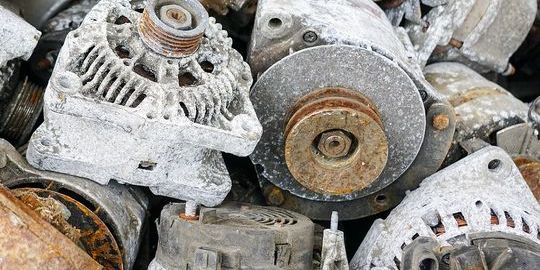A blog from Antonia Grey, BMRA's Head of Policy and Public Affairs

When the Chief Executive of the Environment Agency posited that a solution to tackle waste crime would to end all waste exports, my jaw fell firmly to the floor. And I suspect that I wasn’t the only one on the webinar on waste crime who found themselves in such a predicament.
In a somewhat startling statement Sir James Bevan said: “I think we should set ourselves the challenge of getting as soon as possible to a position where we process all our waste at home and end all waste exports.”
He suggested not only would this move end the reputational damage being caused to the UK through illegal export, but also it would effectively close the door on waste criminals. It would also drive more recycling and greater innovation.
For some time now, the British Metals Recycling Association (BMRA) has been working with different universities and other groups that are all looking at how the UK should be using more scrap metal while at the same time improving its quality. Time after time, we have found ourselves pushing back on the idea that impediments to exports should be examined by repeating four simple, yet key, facts:
- UK domestic end users can, in the main, get the quality they want but they have to pay for any additional processing.
- There are not enough end-users in the UK to process the 10 million tonnes of scrap we recycle every year.
- If the Government wants to have a thriving metals industry in the UK, and attract new companies into the market, it has to do something about the huge disparity in the cost of electricity between domestic producers and those based in France and Germany.
- The Government should be leading by example and mandating the use of domestically produced steel in national infrastructure projects but it should also set a minimum levels of recycled content not to mention embodied carbon. In fact, given the EU has filed a dispute against the UK at the World Trade Organisation (WTO) over British State Aid for offshore wind farms, this point could become more important. The EU alleges that our granting subsidies unfairly favour British products and suppliers over foreign competitors. However, what if containing 30% recycled content was also a factor? A question perhaps to be asked but not today.
While there is always room for innovation in every industry, to suggest that banning exports would drive both recycling and innovation is not true. Firstly, we are already very good at recycling metal. Secondly, the value of many metals is generally increasing, and it is this that is driving innovation. In fact, a ban could actually stifle or harm innovation in the short term because innovation takes money and if you can’t sell your scrap, how do you fund innovation and new technology?
It is a shame that, once again, legitimate companies are firmly in the crosshairs of regulators and legislators. Rather than tackle illegal operators by properly funding enforcement activities, including greater scrutiny at the border, Sir James’ is solution is to go after the known knowns. As well as being impractical, banning the export of globally traded commodities would be detrimental to the economy.
What would drive both innovation and technology would be for the Government to recognized that processed scrap metal is a recycled raw material and most definitely not waste. The very definition of ‘waste’ makes this clear it being a ‘material, substance, or by-product that is discarded as no longer useful or required after the completion of a process’. Scrap metal is neither an unwanted nor unusable material.



